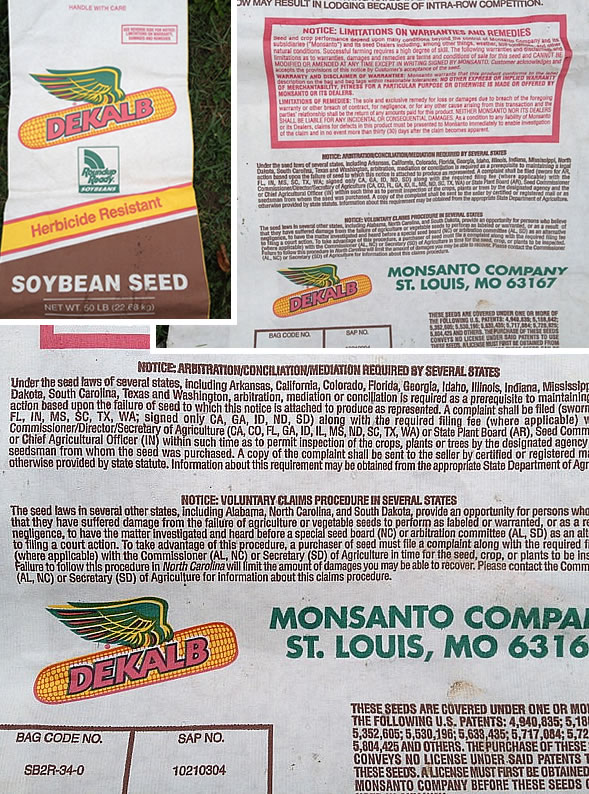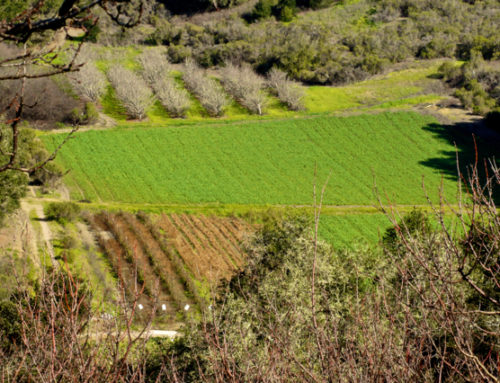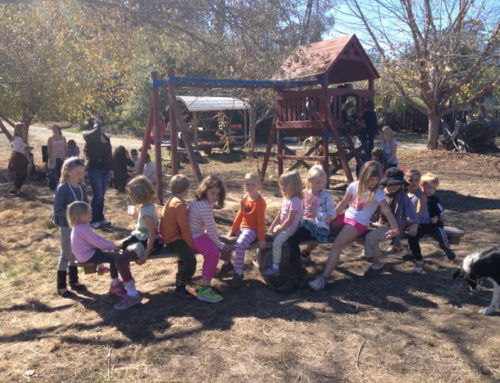 In nature it is inconceivable that genetic material (DNA) from one organism is inserted into a different species. Imagine exchanging genes from a rat or fish with those of a tomato. This is nothing unusual, however, with today’s DNA technology. GMO corn and soybeans, for example, are grown on millions of acres across the country, largely unchecked as to whether they are harmful to the environment or human health. As with any life form, once established in its new surroundings, it can replicate, change and spread. The genie is out of the bottle now, difficult or impossible to stuff back.
In nature it is inconceivable that genetic material (DNA) from one organism is inserted into a different species. Imagine exchanging genes from a rat or fish with those of a tomato. This is nothing unusual, however, with today’s DNA technology. GMO corn and soybeans, for example, are grown on millions of acres across the country, largely unchecked as to whether they are harmful to the environment or human health. As with any life form, once established in its new surroundings, it can replicate, change and spread. The genie is out of the bottle now, difficult or impossible to stuff back.It never seems to stop. We are constantly called upon to preserve and protect our food and environment from corporate and government abuses. How is it that large corporations like Monsanto, hand in hand with our government, somehow keep defining the terms by which we, the public, can claim our rights for clean healthy food, water, air, and soil? Unless you only eat organic food, right now, without labeling, you can’t be sure GMO crops are not part of your daily diet. Currently there is no proof that these crops are not harmful; on the contrary, there are peer-reviewed studies indicating that indeed GMO foods cause detrimental effects on human health and our environment at large. We have become guinea pigs on a large scale, without any choice in the matter. Part of an experiment to which we have never given our consent. At the very least, food containing GMOs should be labeled so that we can have a choice.
California’s Proposition 37 to label foods containing genetically modified organisms (GMOs) is up for a vote on Tuesday, November 6. It is a simple bill, requiring the labeling of genetically engineered foods  sold in grocery stores in California, just like they’re labeled for consumers in over 60 countries around the world (see typical EU label, at right). Big pesticide companies are spending one million dollars a day to confuse California voters about Prop 37. Monsanto and DuPont are the biggest donors, with BASF, Bayer, Dow and Syngenta amounting to over $20 million. Another nearly $20 million is coming from PepsiCo, Nestle, CocaCola and friends. Corporate greed and economic profiteering, not the common public good, is behind the no-vote for Proposition 37.
sold in grocery stores in California, just like they’re labeled for consumers in over 60 countries around the world (see typical EU label, at right). Big pesticide companies are spending one million dollars a day to confuse California voters about Prop 37. Monsanto and DuPont are the biggest donors, with BASF, Bayer, Dow and Syngenta amounting to over $20 million. Another nearly $20 million is coming from PepsiCo, Nestle, CocaCola and friends. Corporate greed and economic profiteering, not the common public good, is behind the no-vote for Proposition 37.
 sold in grocery stores in California, just like they’re labeled for consumers in over 60 countries around the world (see typical EU label, at right). Big pesticide companies are spending one million dollars a day to confuse California voters about Prop 37. Monsanto and DuPont are the biggest donors, with BASF, Bayer, Dow and Syngenta amounting to over $20 million. Another nearly $20 million is coming from PepsiCo, Nestle, CocaCola and friends. Corporate greed and economic profiteering, not the common public good, is behind the no-vote for Proposition 37.
sold in grocery stores in California, just like they’re labeled for consumers in over 60 countries around the world (see typical EU label, at right). Big pesticide companies are spending one million dollars a day to confuse California voters about Prop 37. Monsanto and DuPont are the biggest donors, with BASF, Bayer, Dow and Syngenta amounting to over $20 million. Another nearly $20 million is coming from PepsiCo, Nestle, CocaCola and friends. Corporate greed and economic profiteering, not the common public good, is behind the no-vote for Proposition 37.It is important for there to be more transparency in our food system; whether organic or conventionally grown, we should still have the right to know whether our food contains genetically modified organisms and exercise our freedom to choose.
At some level, by claiming our right to choose, we insist on maintaining a more democratic food system, where seeds are not patented and life’s diversity is not privatized. Seeds are the first link in our food chain. For centuries farmers have grown food to nourish their communities by saving seeds, working with nature to evolve crop varieties to suit both diverse climates and cultures. Each seed encoded with its own DNA tells a long, winding, and subtle story. It includes the history of how seeds have crossed human hands, how they have been cultivated, selected, and traded, often shaping the destiny of human civilization and cultures across the world.
Many of our farm’s crops are heirlooms, traded and passed down for many generations. This week, for example, the Aztec Corn or Mexican Sweet Corn you have in your shares is an heirloom. It has been grown for hundreds of years, said to have been introduced into the seed trade in the 1860’s, and is good for eating fresh when the kernels are still white. As they turn purple, red, and bluish in color, they become starchier, and once dried can be ground into cornmeal to make tortillas.
I always marvel at the powerful simplicity reflected in a seed; our entire operation depends on the availability of these small living treasures of nature. Every time our tractor-mounted seeder rolls over a freshly shaped bed dropping tiny carrot, beet or brassica seeds into shallow furrows, I find it hard to believe that these miniscule, seemingly vulnerable units of life will be able to provide an abundant, nourishing and profitable return. Sometimes I will crawl on all fours, scratching the surface impatiently looking for evidence of life underneath the soil, and am always happy and relieved when seeds germinate, breaking through the soil crust a few days after sowing.
Local cultures and markets have promoted crop diversity to thrive for centuries; today the local food movement is helping small farms like ours continue to promote food and crop diversity, building food communities, giving access to diverse healthy local food by marketing directly to stores, businesses, restaurants and through local CSAs and farmer’s markets.
Every vegetable and fruit you get in your CSA box has a story to tell. It is not the story of scary, unnatural gene recombinations we have to buy into to support the profiteering of a few large corporations. We all participate in shaping the story of these crops. They become part of our lives as we grow, cook, and eat them. By choosing to eat healthy unaltered seasonally grown foods we tune into the story of food grown locally, the history of the land, and the living community we are a part of.
below: non-GMO seeds and their respective vegetables… tomato, broccoli, melon, beet.








